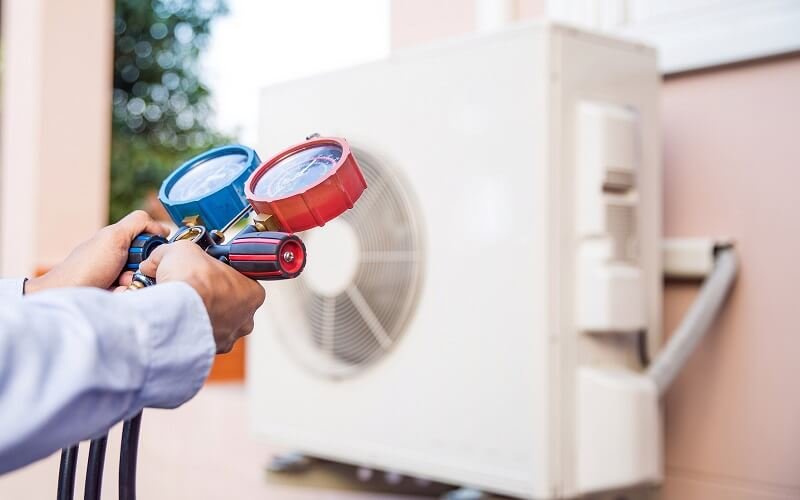When they’re working fine, air conditioners make life so much more comfortable. But when they break down, they can be a serious source of frustration, leaving homeowners hot, sticky, and desperate to have them working again.
Refrigerant leaks are a common AC issue. However, this guide will help homeowners spot and address them.
WHAT IS A REFRIGERANT LEAK?
AC refrigerant is a compound that circulates throughout an AC system, helping to cool down the air inside the home. It takes both liquid and gas form, depending on which part of the unit it’s in. And so, a refrigerant leak is when this compound escapes from the system.
This is a serious issue, potentially causing fire hazards and environmental damage and leading to total AC system failure. Homeowners might even suffer health issues like dizziness and headaches from exposure to leaking refrigerant.
WHAT CAUSES REFRIGERANT LEAKS?
There are many possible causes of AC refrigerant leaks. Examples include general wear and tear, improper installation, or physical damage to the unit. Regular checks, inspections, and AC maintenance can help spot and treat leaks before they worsen.
SPOTTING A REFRIGERANT LEAK
Knowing the signs and symptoms of a refrigerant leak can help homeowners spot it and take the appropriate action. Here are some common signs to watch out for:
RUNNING BUT NOT COOLING
If the AC system is up and running but isn’t blowing out cool air, that’s a sign that refrigerant may be too low. And a leak could be the culprit.
STICKY AIR
The air shouldn’t feel too humid when the AC runs smoothly. But if it suddenly feels quite sticky indoors, that could be connected to a lack of refrigerant.
HISSING NOISES
It’s never a good sign when an AC starts making weird noises. A hiss may be caused by refrigerant seeping through a little crack or gap in the system.
STAYS ON LONGER
A fully functional AC should run at the same rate, regardless of the weather or temperature. But, if a unit seems to be cooling for longer without turning off, or if it’s just running non-stop, a leak could be to blame.
HIGHER BILLS
When there’s a leak, the AC has to work even harder to cool down the home. It uses more energy, leading to higher monthly bills for the homeowner.


